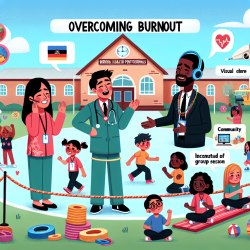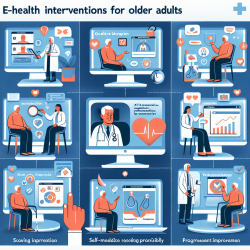Introduction
In the evolving landscape of educational support, school social workers are pivotal in nurturing the holistic development of students. The integration of online therapy services is revolutionizing how these professionals can enhance their practice. By leveraging data-driven tools and innovative approaches, school social workers can significantly impact children's outcomes, particularly in speech therapy staffing and beyond.
The Role of School Social Workers
School social workers are instrumental in identifying and addressing the social, emotional, and academic needs of students. They work collaboratively with teachers, parents, and other professionals to create supportive environments that foster student success. However, the increasing demand for specialized services, such as speech therapy, presents unique challenges in staffing and resource allocation.
Addressing Challenges with Online Therapy Services
Online therapy services offer a promising solution to the challenges faced by school social workers, particularly in the realm of speech therapy staffing. These services provide a flexible, accessible, and efficient way to deliver therapy, overcoming geographical and logistical barriers.
- Accessibility: Online platforms enable students to receive therapy regardless of location, ensuring that even those in remote areas have access to essential services.
- Efficiency: By utilizing online tools, therapy sessions can be scheduled more flexibly, accommodating the busy schedules of both students and therapists.
- Data-Driven Decisions: Online platforms often include tools for tracking progress and outcomes, allowing social workers to make informed decisions based on real-time data.
Creating Effective Tools for School Social Workers
To maximize the benefits of online therapy services, it is crucial to develop tools that align with the specific needs of school social workers. These tools should be designed to enhance communication, streamline processes, and facilitate collaboration among all stakeholders involved in a child's education.
- Communication Platforms: Tools that enable seamless communication between social workers, therapists, and families can enhance the support network for students.
- Progress Monitoring: Integrated systems for tracking student progress in real-time can help social workers tailor interventions to meet individual needs effectively.
- Resource Libraries: Access to a wealth of resources and materials can empower social workers to implement evidence-based strategies in their practice.
Conclusion
The integration of online therapy services into the toolkit of school social workers represents a significant advancement in educational support. By addressing challenges such as speech therapy staffing and enhancing accessibility, these services empower social workers to create better outcomes for children. As we continue to develop and refine these tools, the potential for positive impact on student success is immense.
Informed decisions, driven by data and supported by innovative technology, are the cornerstone of effective school social work. By embracing these advancements, we can ensure that every child has the opportunity to thrive.










